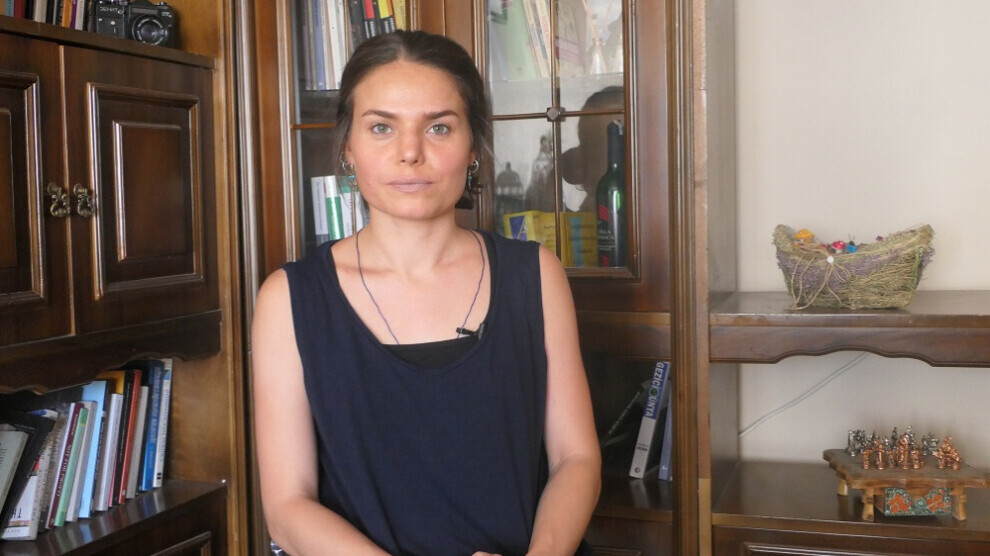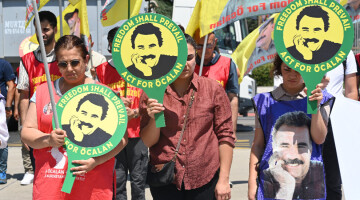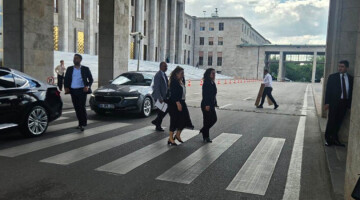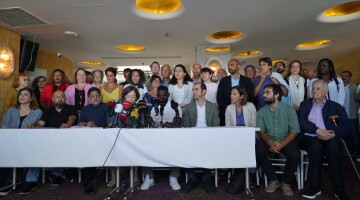Yaşar, Barış, Serpil, Serap, Ipek, Metin and Sibel Dedeoğulları were killed in an armed attack. The Kurdish family from Kars was living in the neighbourhood of Hasanköy in Meram, Konya. After the massacre, the attackers set fire to the house and fled the scene.
The Dedeoğulları family was attacked by a racist group of 60 people living in the same neighbourhood on 12 May. The Dedeoğulları family was from Kars and was made up of 7 people, 4 of them women. Back in May, they were attacked with knives, stones and sticks. The attackers said ‘We are nationalists; we will not let you live here’. Five people were arrested in connection with the attack but were released for ‘lack of evidence’.
Free Lawyers Association (ÖHD) Amed Branch Board member Suzan Akipa spoke to ANF about the policy of impunity and the massacre against a Kurdish family in Konya.
Akipa said that racist fascist organized attacks against Kurds in various cities of Turkey have increased lately and added: “We need to evaluate the massacre without detaching it from its historical context. It should be evaluated within the historical and social process. We can never evaluate these attacks against the Kurds independently of the HDP's closure case, the Kobanê case against Kurdish politics, the trustees and women's policies, and ecological destruction. The latest racist attack on a Kurdish family, in Konya, and the brutal murder of 7 of its members clearly revealed that we got to a very sad level."
Akipa said that 7 people were killed by a total of 19 bullets, as reflected in the press, and added: "They were shot in the head. They were killed not by a single bullet, but by more than one bullet, and the attackers set fire to everything in their house. There is a policy of attacking everything that makes Kurds Kurdish. They shoot a dead body. This is called an extermination policy. These destruction policies should not be considered as the decisions of 50-60 people alone. It is not an isolated case. The discriminatory, racist, fascist approaches and hate speeches of the political power paved the way for this massacre and constitute the main ground. The Kurdish family was systematically attacked by the same group months ago. When this family complained to the court authorities, it was recorded that they were said to have been attacked because ‘of our Kurdish identity’. They said, in front of the law enforcement, that we will not let a Kurd live here. The attackers in May were released for lack of evidence. The family has been given a protection decision, but the political power, the mainstream media and the judicial system are all responsible for this massacre."
Stating that it is an arbitrary practice, Akipa added: "The government's policies against Kurdish parties and Kurdish women are the reason for this hostility. The targeting of Kurds through forest fires, the efforts of the political power to illegally shut down the HDP, the third largest party in this country, have a similar mentality to that which brought about the murder of Deniz Poyraz in Izmir.”
Akipa continued: “We think that the political atmosphere in the country, the judiciary, unlawfulness, policies of impunity and the language of hatred are all factors leading to this massacre. It is not a one-off event, it is not the first, and all segments of society, rights law organizations, bar associations, individual individuals, must unite in a common struggle. Regarding the selfish practices of the nation state, I think that everyone's participation in a democratic society and building a democratic nation is the most important field of struggle."
Akipa continued: “We are told that the incident is being investigated and sometimes we hear words of sadness or condemnation in the statements issued by the Governorship of Konya. It is not enough to simply condemn and say that we are investigating. The murderers must be prosecuted. I think that all political forces, civil society organisations, lawyers, bar associations should fight to ensure this.”












